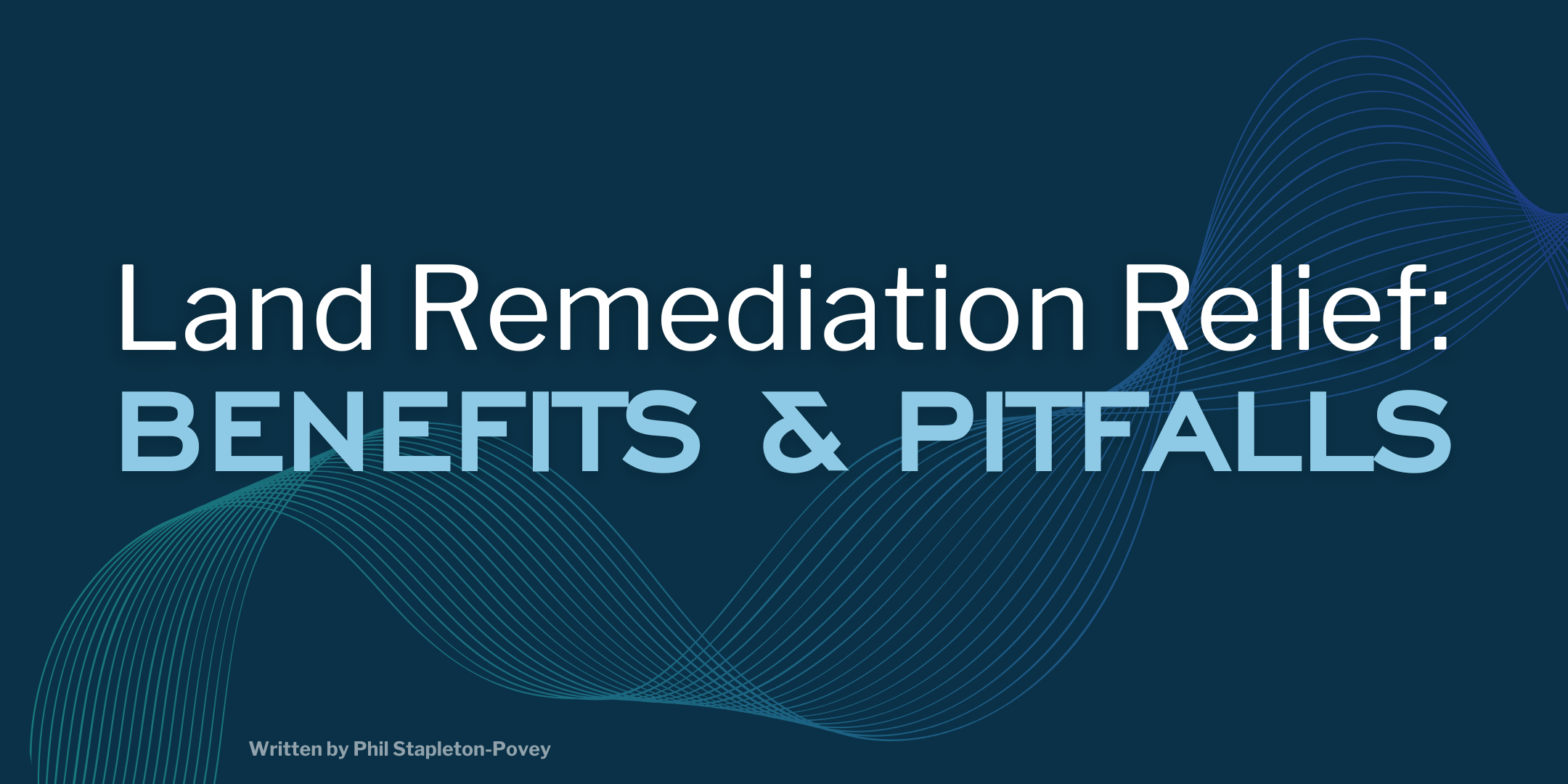_____
Land remediation plays a crucial role in restoring contaminated land to safe use conditions. This complex and costly process involves numerous environmental regulations, technical challenges, and financial considerations. Land Remediation Relief (LRR) is a valuable tax relief available to companies in many jurisdictions, aimed at encouraging the cleanup of contaminated sites. However, the intricacies of LRR can be daunting without expert guidance. In this discussion, we explore the benefits of using a specialist for Land Remediation Relief and the potential pitfalls of trying to navigate this complex field without one.
The Benefits of using a Specialist like Counting King
-
Expert Knowledge and Experience
Specialists in land remediation and tax relief bring a deep understanding of the legal and technical aspects involved. They have a strong grasp of environmental regulations, tax codes, and the specific criteria for qualifying for Land Remediation Relief (LRR). Their expertise ensures that companies identify and claim all eligible expenses, maximising potential relief.
-
Accurate Assessment and Documentation
A specialist can accurately evaluate the extent of contamination and the required remediation measures. They understand the documentation needed to support a claim for LRR, making sure the claim is robust and less likely to be challenged by tax authorities. Proper documentation is crucial to demonstrate that the remediation work qualifies for relief and that all procedures have been correctly followed.
-
Efficient Claim Process
The claim process for LRR can be time-consuming and complex. Specialists streamline this process by handling the preparation and submission of claims, managing communications with tax authorities, and addressing any queries or challenges that might arise. This efficiency saves businesses significant time and resources.
-
Risk Mitigation
Specialists help mitigate the risks associated with incorrect or incomplete claims. Filing for LRR without a thorough understanding of the requirements can lead to errors that may result in penalties, fines, or the rejection of the claim. Specialists ensure compliance with all regulations, reducing the risk of financial and legal repercussions.
-
Maximised Financial Benefits
By leveraging their expertise, specialists can identify all eligible costs, including those that may not be immediately obvious to non-experts. This comprehensive approach ensures that businesses receive the maximum financial benefit from LRR, potentially resulting in substantial tax savings.
-
Access to Advanced Remediation Technologies
Specialists often have access to advanced remediation technologies and methodologies. Their knowledge of the latest innovations can lead to more effective and efficient remediation processes, further supporting the successful qualification for LRR.
-
Long-Term Strategic Planning
Engaging a specialist provides businesses with strategic advice for long-term planning. Specialists can offer insights into future land use, potential regulatory changes, and sustainable remediation practices, helping businesses make informed decisions that benefit their operations in the long run.
The Pitfalls of not using a Specialist
-
Incomplete or Incorrect Claims
Businesses without a specialist may struggle to grasp the full scope of eligible expenses and necessary documentation. This can lead to incomplete or incorrect claims, which may be rejected by tax authorities. The time and effort invested in an unsuccessful claim can significantly set back a business.
-
Missed Opportunities for Relief
Non-specialists might overlook certain costs or remediation activities that qualify for Land Remediation Relief (LRR). This oversight can result in missed opportunities for tax relief, reducing the financial benefits available to the business. Specialists, with their deep knowledge, ensure that all qualifying expenses are identified and claimed.
-
Regulatory Non-Compliance
Navigating environmental regulations and tax codes is complex, and non-compliance can have serious consequences. Without expert guidance, businesses risk failing to meet regulatory requirements, which can lead to penalties, fines, and legal actions. Specialists help ensure that all work complies with relevant laws and regulations.
-
Increased Administrative Burden
Managing the LRR claim process in-house can significantly burden the business administratively. The resources and time needed to prepare and submit claims, respond to tax authority queries, and manage documentation can detract from core business activities. Specialists alleviate this burden, allowing businesses to focus on their primary operations.
-
Financial and Legal Risks
Incorrect claims can expose businesses to financial and legal risks, including potential audits, penalties, and legal disputes. Specialists mitigate these risks by ensuring that claims are accurate, well-documented, and compliant with all regulations, reducing the likelihood of costly disputes with tax authorities.
-
Delays in Remediation Projects
Without the expertise of a specialist, businesses may face delays in their remediation projects. Unfamiliarity with the latest technologies and best practices can lead to inefficient remediation processes. Specialists ensure that projects are completed efficiently and effectively, minimizing delays and associated costs.
-
Missed Strategic Opportunities
The absence of specialist input can lead to missed strategic opportunities for long-term planning and sustainable remediation practices. Specialists provide valuable insights and guidance that help businesses make informed decisions about land use, regulatory changes, and future remediation needs.
Conclusion
The complexities of land remediation and Land Remediation Relief require a deep understanding of environmental regulations, tax codes, and technical processes. Engaging a specialist offers numerous benefits, including expert knowledge, efficient claim processes, risk mitigation, and maximized financial benefits. Conversely, attempting to navigate LRR without a specialist can lead to incomplete claims, missed opportunities, regulatory non-compliance, and increased financial and legal risks. For businesses seeking to optimize their land remediation efforts and secure the full benefits of LRR, the expertise of a specialist is invaluable.
Find Out If You’re Eligible for Land Remediation Relief HERE!

